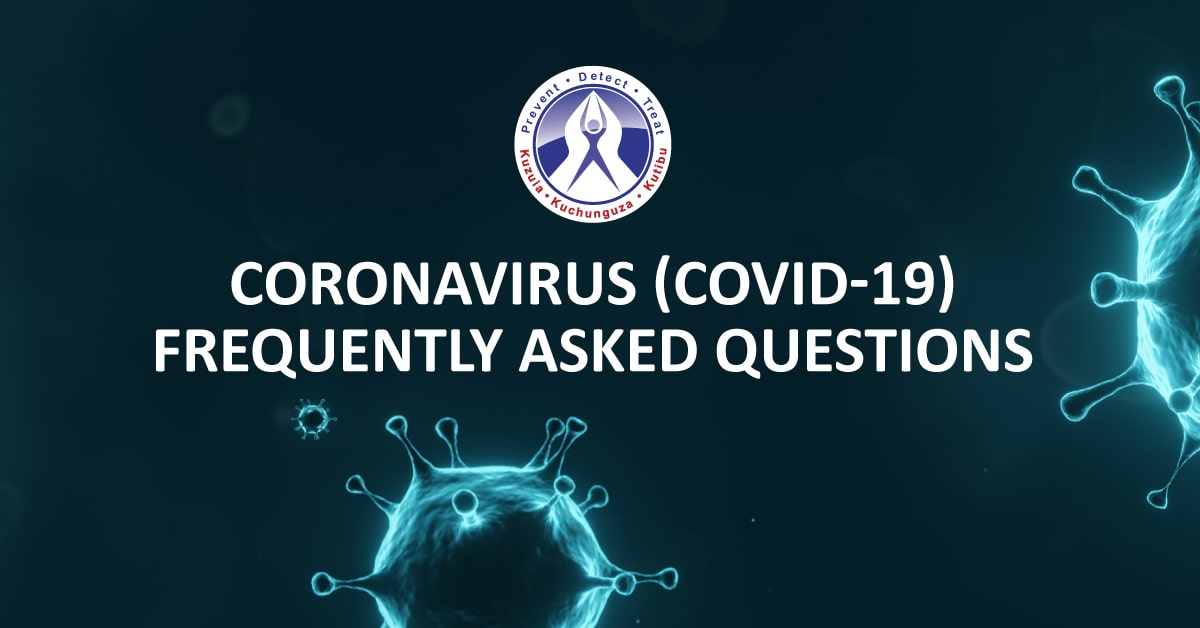Coronavirus (COVID-19) : Frequently Asked Questions
1,531 viewsThe World Health Organization (WHO) has declared the outbreak of Coronavirus (COVID-19) a pandemic. An outbreak of an infectious disease is termed a pandemic when the infection has rapidly spread on a global scale. As fears of the COVID-19 rise across the world, people are falling prey to various rumours and myths about the novel coronavirus disease.
With an aim to protect the people of Tanzania by creating awareness about Coronavirus (COVID-19), we have answered the common FAQs related to COVID-19 below:
1. Do COVID-19 transmissions become weaker in hot climates?
No. Coronavirus (COVID-19) can easily spread from person to person in all areas, regardless of the kind of climate they have.
2. Can taking a hot bath protect you from catching the Coronavirus (COVID-19) infection?
Hot bath or showers do not change your normal body temperature. So no, taking a hot bath will not protect you from catching the coronavirus infection. The best way to prevent Coronavirus (COVID-19) is to keep your hands clean by washing them with soap and water and by maintaining a distance of at least 1 meter from everyone around you.
3. Does the new Coronavirus (COVID-19) only affect older people?
Although elderly people and people with pre-existing diseases are more likely to develop severe problems after catching the new coronavirus disease, the fact is people of all age groups are equally vulnerable to getting infected by Coronavirus (COVID-19). We advise people of all age groups to take all the precautionary measures to protect themselves from catching the coronavirus infection.
4. Can spraying alcohol or chlorine all over your body kill the new coronavirus?
While alcohol or chlorine are effective in disinfecting the objects around you, they cannot kill the virus that has already entered your body. It’s advised to not spray such substances on your body as they may have dangerous side effects on your mucous membranes (eyes, nose, and mouth).
5. Are antibiotics effective in preventing and treating the new coronavirus?
Antibiotics are effective in killing only bacteria, not viruses. So antibiotics can neither treat nor prevent the respiratory infection that a person may catch from the novel coronavirus disease.
6. Can mosquito bites transmit the coronavirus infection?
No. Coronavirus (COVID-19) is a respiratory infection. It spreads when a person inhales the respiratory droplets released by an infected person through their mouth or nose. Sometimes, these respiratory droplets may land on objects around the infected person. When you touch these infected surfaces with your hands and then touch your eyes, nose or mouth, you can catch the infection.
7. Are thermal scanners effective in detecting whether a person is infected with COVID-19?
Thermal scanners can scan the body temperature so they are effective in detecting whether a person has a fever. However, many people who are infected with the new coronavirus disease do not show any symptoms for up to 14 days after catching the infection. Thus, thermal scanners cannot be relied on for detecting whether a person is infected with Coronavirus (COVID-19).
8. Should you wear a mask to prevent the new coronavirus infection?
You should wear a mask only when:
- You are sick or when you are coughing and sneezing
- You are taking care of someone who is suspected to have Coronavirus (COVID-19) infection
Note: Wearing a mask can protect you from catching the infection only if you keep your hands clean by using alcohol-based sanitizer or by washing them with water and soap.
You can find more information about Coronavirus (COVID-19) here.

